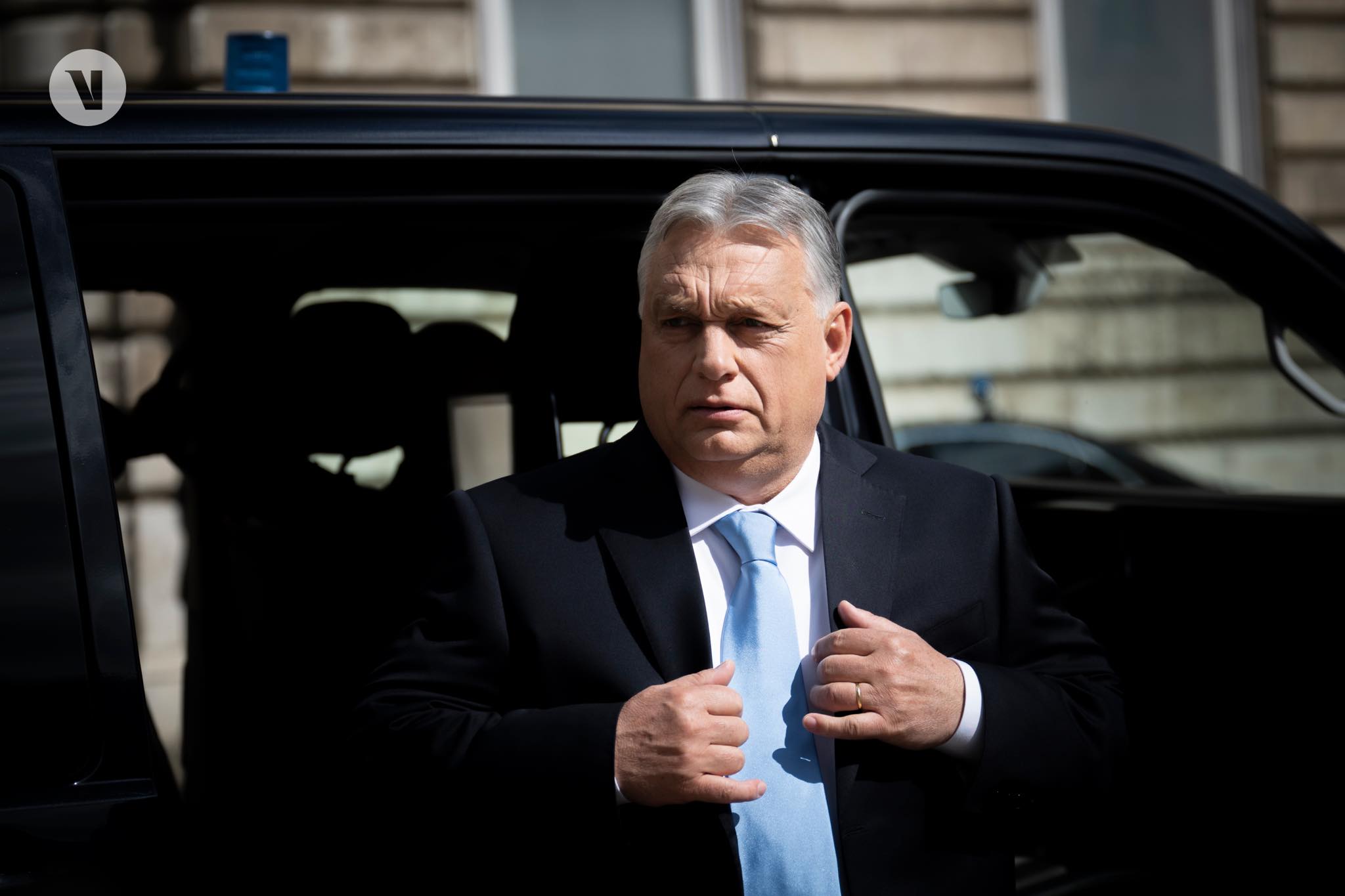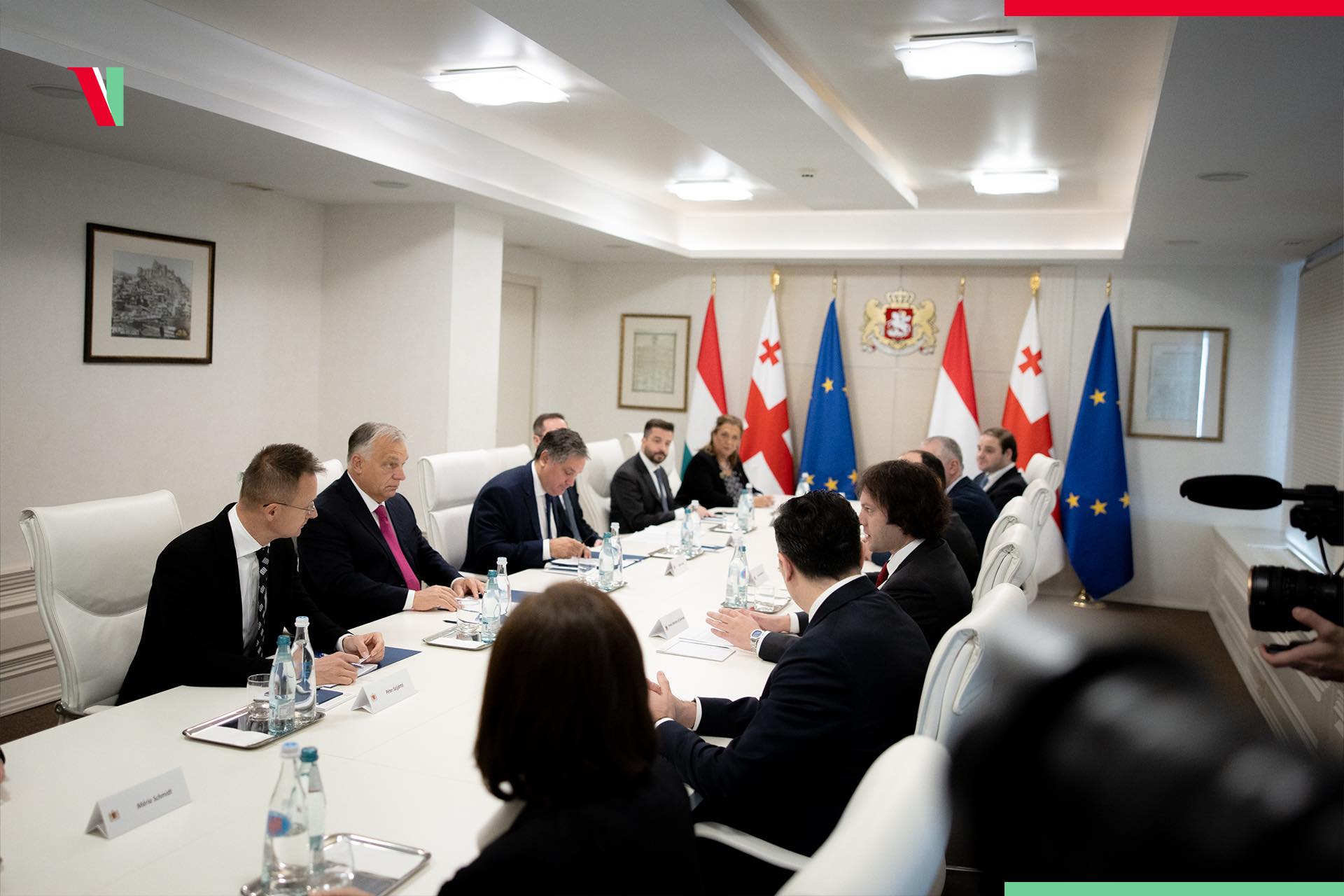Kremlin spokesperson praises Orbán’s “independent and constructive” approach

Change language:
In a recent statement, Dmitry Peskov, spokesperson for the Russian president, praised Hungarian Prime Minister Viktor Orbán’s approach to foreign policy, highlighting Orbán’s commitment to an “independent position” that stands apart from the “contradictory and short-sighted” policies of EU foreign policy head Josep Borrell.
According to 444.hu, Peskov emphasised that Moscow values Orbán’s determination to shape Hungary’s economic and diplomatic strategy to suit its own interests, even when it diverges from the EU’s mainstream approach. While expressing respect for Orbán’s autonomy, Peskov clarified that Russia has no intention of meddling in European politics and aims to avoid getting entangled in EU’s internal conflicts.

Orbán’s speech and his Georgia visit
On the 23rd of October, Hungarian Prime Minister Viktor Orbán stirred up controversy with comments suggesting a “Brussels conspiracy” aimed at toppling the Hungarian government, sparking both domestic and international backlash. Shortly afterwards, Orbán’s visit to Georgia caught analysts’ attention as a potential nod to Russian interests. Given Georgia’s own struggles with Russian influence and election controversies, Orbán’s timing appeared significant, leading 13 EU foreign ministers to criticise the visit as a move that disregarded the EU’s expectations regarding Georgia’s governance and reform.
Orbán’s visit aligns with his recent commitment to a “neutral” economic policy, as laid out in Tusnádfürdő, where he announced Hungary’s intention to balance between global powers. Though Orbán has publicly positioned Hungary as neutral since September, the approach is causing tension among EU and NATO allies, who view his strengthening ties with Russia and China as incompatible with Hungary’s membership in both organisations.







Praise for Orban and the Fidesz government will soon be coming from Iran and North Korea.
Orban is not in lockstep with the globalist-socialist puppets of the West on a matter of huge importance for the Hungarian nation. How terrible.
The question is simple: Is a continued war in Ukraine in the interests of the Hungarian people or would it be a negotiated settlement*?
The answer is even simpler.
* which Russia offered multiple times now but was rebuffed not even by Ukraine but by certain Western powers
This further widened the gap between Budapest and the rest of NATO. NATO allies’ frustration with Budapest is reaching a boiling point, while Hungary continues to flirt with Russia, Politico reports.
According to allies, Orban’s unilateral foreign policy actions are further undermining the efforts of the EU and NATO. Furthermore, Orban wants to maintain relations with both East and West. This is moving Hungary further away from the Western orientation and making it a highly problematic NATO and EU ally.
At some point the break will have to occur if things continue like this, with all the resulting consequences for the German social refugees in Hungary. As a German in Hungary, you should at least consider such a development in order not to end up being caught off guard.
Beginning:
When NATO military advisers and ambassadors met on October 31 to discuss Hungary’s relations with Russia and China, Hungary simply ignored the meeting.
Welcome – Manfred Klappstuhl.
Healthy – that a “new” commentator has “put his money, where his mouth is” – spoken from the Heart – with No, as I write, position nor “invested interest” – affiliation, association nor aligning – other his, no doubt his family and loves one’s – with a Hungarian Political Party.
Michael Steiner – the exact OPPOSITE.
Member of the Fidesz Party – “Cheer” Leader of the “ill fated” current Prime Minister of Hungary – Victor Mihaly. Orban and his Fidesz “Heinous” Government of Hungary.
Expanding Manfred’s commentary – its only a matter of time, before the ERADICATION of Hungary, by the mentioned in Manfred’s commentary.
Hungary – it’s FUTURE in Schengen “deepens” to be extremely – un-workable and unaligned, to the Laws of Schengen Membership.
Hungary – through OWNERSHIP – his doing – Victor Mihaly. Orban – responsibility SOLELY rests upon him- the Hungary, we live in to-day.
Hungary today – is Financially & Economically in CHAOS.
Millions of Hungarians are in a “Nadir” rapid downward path, that there FUTURE’s are or have Disappeared.
Orban – a “dictionary” of words could be used to explain/capture this individual and the word, an ANTAGONIST is one.
It is said that antagonists, a person who actively opposes – is aggressive and hostile – invective, a bigot / dogmatist in nature, to someone or something, inclusive of NEVER practicing CONFORMITY – that within there character behaviour, what is referred to as an “Inferior Complex”.
Orban – we know is muchly a self centered individual, externally expressing a “delivery” of confidence, that in his DNA – has convinced him, he is of a “Demigod” character – believing of his Empowerment over others, and will at ALL costs, by all means and measure’s, pursue his – in Orbans case – that are reminiscent of being – Dreams of Xanadu.
Orban, his HISTORY of ‘Insidious Desires” – sneaky, treacherous, inclusive of a “Clandestine” trait, that encaptures, that in character he can be referred to – and I believe Hungary has factual evidence – as a “Traitorous” character.
Hungary – from using as a “commencement” point/date 1989 – had EXPOSED to them – the FACE of Victor Mihaly. Orban.
Orban, the Heart at that time 1989 – may have been in the “right place” – that DEMOCRACY – freedom & liberty, the freedom of the people of Hungary, to vote as they, in there own consciences choose, but the SOUL, where was that ?
1989 to 2024 – the treacherous act’s inflicted upon us, the civilians/population of Hungary – no greater than the DISTILLATION of DEMOCRACY in Hungary, a process by which, he Orban and his Fidesz Government, in the period of 16 years in Government, have been “playing out” – that DELIVERS us, as a country, we are to-day, that is a cataclysmic DISASTER.
It WILL all WORSEN – that pre 1989 times in Hungary, appearing as they do NOW, if we ALLOW it, and don’t in SOLIDARITY take actions to STOP it – “bury” it – we could, we could be heading into a Perilous demise.
History – never Lies.
Victor Mihaly. Orban – look, read of historical figures – “infamous” individuals – those living in the 21st century, there CHARACTERISTIC’s – there backgrounds – reason(s) of WHY and WHAT made them – through the conduct of there lives today – we know them – witnessed there “Creeds” – there “Dogma” – which are inclusive of the 21st century, alive and RULE – as Dictators today.
Saint Pope John Paul 11 – in 1991 – the first of his (2) two Papal visits to Hungary, during his Pontificate, as part of his Homily, delivered in Hero’s Square at his Pontificate Mass, which Victor Mihaly. Orban, sat in the VIP seats – front row – HEARD.
The POWER of Saint Pope John Paul 11 – message, his words and the WISDOM granted him to SHARE with Hungary, that all these years on = 35 plus years – we see CRUSHED – abandoned.
Saint Pope John Paul 11 said :
“Be Mindful of the Blessing that Freedom, which you Hungary, have rightly Definitively Secured – and means to your FUTURE.
Cherish it, and make Good use of Your LIBERTY.”
On stone etched – in Heroes Square to-day – 35 plus years on, that “Sacred” square – a place we rightfully treat with “Pious” – the remembering of our ancestral historic proud forebearers and our background as a country.
Hungary – we have been FAILED.
Now I understand why many Hungarians call Orban a ‘commie’ and running a state managed economy?
However, like the polls, economic decline (vs peers), population ageing/stagnation and working age emigration; no evidence of any strategic success for Fidesz, Hungary and citizens?
@michaelsteiner – what, exactly, did Mr. Putin´s Russia offer in the way of “Peace!”?
http://en.kremlin.ru/events/president/news/75204
“The truth is on our side. All the goals we have set for ourselves will be achieved. ”
Reconciliatory language, indeed. Mr. Putin should be appeased and he will not commit any future aggression against neighbors, I´m sure!
What a shame, that Daily News HUNGARY morphed into a meeting place for disgruntled entities to ease their /To whom it may concern.The word “their” is a possessive pronoun, that indicates ownership by multiple people or things. It has nothing to do with the word “there”, which is an adverb, indicating a place/, frustrations.
Dear, honored Manfred Klappstuhl. Have you come to our lovely gathering to enlighten the group of the “…folding chair that became a symbol of resistance against White violence, after it was used during the Montgomery Riverfront Uprising”? How thoughtful. Nice of you. Adieu everyone. Do continue demoralizing if that’s what makes your day… 🙂